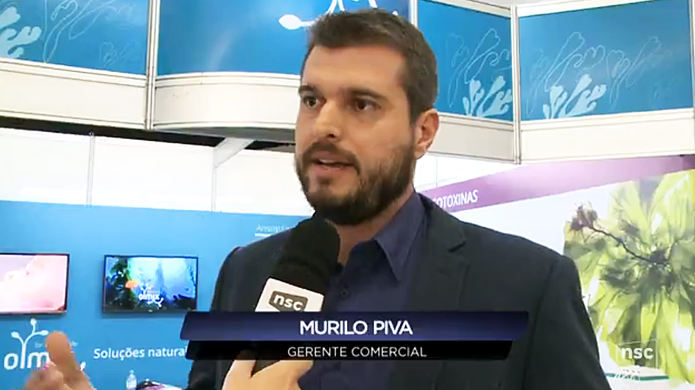Based at booth 18, not only did the Olmix Animal Care team present the latest updates on the company’s natural alternatives to reduce the use of antibiotics, but also took the opportunity to welcome the Brazilian TV Channel ‘Globo’, which recently published a video report on the Olmix’s strategies to move towards an antibiotic-free production through the valorization and application of specific algae extracts.
“Antibiotics can have a therapeutic use and it is going to be very difficult not to use them this way. However, they are commonly used as growth promoters and we are working to replace them by natural alternatives. The world is moving towards an antibiotic-free production and Olmix is going the extra mile to reach that goal”, Mr Piva said during the interview.
Indeed, the TV programme highlighted the Olmix’s innovative techniques to reduce the use of antibiotics by using algae raw material and betting on a natural antibiotic-free programme in the farm. Luis Felipe Carón, from the Federal University of Paraná (Brazil) and Olmix’s contributor, supported the philosophy of the company and shared his views on the evolution of the livestock market in Brazil:

Mr Murilo Piva was interviewed by 'Globo' TV.
